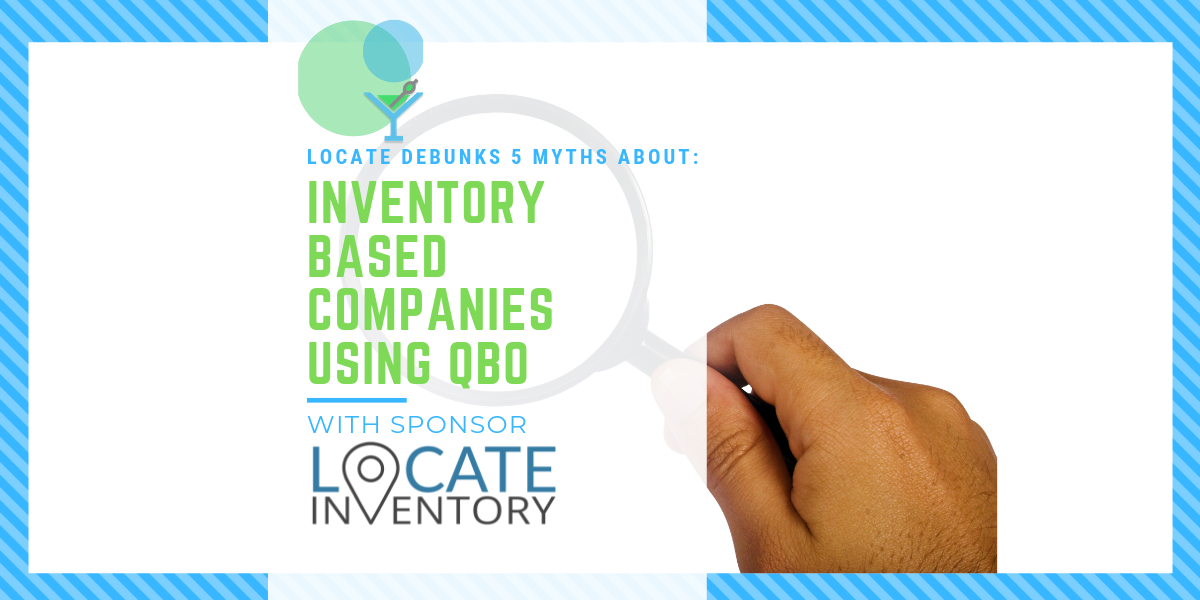The team behind LOCATE Inventory spent several years as consultants working with inventory-based QuickBooks users before writing a single line of their groundbreaking software. This gave them firsthand knowledge of the needs and pain points of product-based companies in the mid-market. Over the years, they saw that their clients were outgrowing their current software solutions, both in financial data volume and inventory functionality, which forced these companies to consider jumping to a costly ERP-system. They didn’t want to leave the QuickBooks ecosystem, but there was no existing inventory solution that would meet their workflow and accounting needs. They were also itching to ditch their legacy desktop systems, both QuickBooks Desktop and their on-premise inventory software, for the enhanced convenience and capabilities of the cloud. That’s when the team decided to build LOCATE – a cloud-based solution to bridge the gap between QuickBooks and ERP systems, by bringing enterprise-level functionality to the mid-market.
LOCATE integrates with both QuickBooks Online (QBO) and QuickBooks Desktop QBD), meaning companies can remain on whichever platform they’re comfortable with, but incoming clients often take the opportunity to reconsider which is a better fit. Many larger or high-volume businesses are shocked to learn that they, too, can use QBO! It’s been a long-accepted truth that QBO is best suited for smaller or service-based companies – but the LOCATE team wants to prove that QuickBooks cloud offering can be the ideal accounting solution for even the most complex, product-heavy businesses, as long as they have LOCATE to round out their inventory needs. Read on as they debunk 5 of the most common myths surrounding QBO and inventory:
1. I’m too big for QBO! My company fulfills too many orders or has too many parts/customers/vendors etc. for QBO to handle.
This is the most common concern we hear from companies looking to switch to QBO – and it’s precisely what drove us to build LOCATE in the first place!
We developed LOCATE with an accounting-first mindset – meaning every workflow was based around the financial implications of each action. This allowed us to retain the majority of the accounting data in LOCATE, and reduce file-bloat that occurred when a customer’s QuickBooks file was overloaded with unnecessary data, like prepaid orders and inventory records. LOCATE summarizes this data into a single daily journal entry, which is sent to QuickBooks to record financial values and manage AR and AP. All of this is done without sacrificing visibility – every granular detail is kept in LOCATE and is always accessible directly in the interface and/or through our extensive reporting capabilities. Plus, we make sure the data that does sync to QuickBooks is clean and accurate, which makes the job of your financial professional much easier!
What does that look like in practice? We have LOCATE customers using QBO who successfully process 1,500 orders a day!
2. QBO doesn’t have the functionality I need to run an inventory-based business.
It’s no secret that QuickBooks Enterprise has a more robust inventory-focused feature set compared to QBO, however, even Enterprise falls short in its workflow offering for product-based businesses once they start growing. Fortunately, all of the functionality needed to handle inventory processing, order fulfillment, and warehouse management is done in LOCATE. We leave QuickBooks to do what it does best – the AR and AP – while the inventory-specific accounting is handled in LOCATE.
3. I have to upgrade to QBO Advanced if I want more than 250 Accounts / 40 Classes etc.
The number of accounts necessary on the P&L and the number of classes needed can be substantially reduced by using groups, custom fields, and the reporting capabilities available in LOCATE. None of our existing clients have faced these limits, and it will not be an issue for most companies using LOCATE.
Thanks to the efficiency of LOCATE’s accounting practices, companies are no longer bound by the data limitations that often hindered their growth. They can rethink how to best manage their company while retaining full access to all the data they need.
4. The reporting in QBO is not as good as Desktop.
With a robust library of over 130 stock reports, LOCATE carries all the information needed to run a company’s managerial reports, order summaries, customer-facing forms, warehouse documents, recall tracking, and more! QuickBooks reporting is used for its main strengths of providing financial overviews, AR / AP management, and monthly statements for accounting.
5. I don’t trust the cloud – I want my files on-premise, with backups, in case the internet goes down.
“The cloud” isn’t a scary, unknown entity – cloud servers function just like your on-premise server, but in safer locations with plenty of friends to help share the load! Your data is always backed up on QBO, but you’re still able to run manual backups with 3rd party utilities if desired. At LOCATE, we take data redundancy (aka keeping your data safe and accessible) very seriously! We maintain SIX active copies of your data across multiple data centers in real time, plus clustered servers that will take over within seconds in the event of a hardware failure.
Moving to QBO, or any cloud-based software, does require trading in your on-premise server – but the benefits far outweigh the perceived risks. First and foremost, you’re able to access your data anytime, anywhere. Plus, the cost of maintaining finicky hardware is eliminated, along with the risk of physical corruption and the frustrating downtime associated with legacy systems. As an added bonus, this capital expense is replaced by a fixed operating expense on your balance sheet. Finally, although LOCATE does integrate with both QuickBooks platforms, QBO’s cloud-based technology allows for tighter accounting integration.
The goal of this article isn’t to encourage everyone to throw their hardware out the window and migrate to QBO immediately. There are advantages and disadvantages to both QBO and QBD, and businesses should use whichever program is a good fit for their company. We are simply disproving the myth that large, inventory-based companies cannot access the benefits of QBO because of their size and workflow needs.
At the end of the day, neither QBO nor QBD alone can meet the needs of customers whose largest and most important number on their balance sheet is inventory. A program like LOCATE, which integrates seamlessly with both QuickBooks Online and QuickBooks Desktop, gives these businesses the power to choose between these accounting platforms based on their company’s needs, while our ERP-level features keep their business growing strong!

